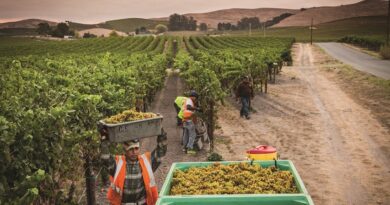Xenophobic Attacks, a Serious Threat to the African Continental Free Trade Area
Formal and informal rules of doing business and their enforcement mechanisms are fragile in Africa and act as an impediment to regional trade and economic growth. Violence and instability in the African continent increase uncertainty and transaction costs with effects that far exceed the reduction of tariff barriers on goods and services under the African Continental Free Trade Area (AfCTFA).
Repeated violent xenophobic attacks on strategic areas such as transportation of essential goods severely affect African trade with South Africa. According to research conducted by Road Freight Association, more than 200 people mostly foreign truck drivers have been killed in South Africa since March 2018. The South African Police Service reported 1,202 truck hijackings in the year 2017/18, making the country one of the global hotspots for cargo crime. The spike in violent cargo hijackings cost businesses millions in revenues and destruct the entire supply chains in the region. This destruction causes a significant economic loss to South Africa, which is the second-largest economy in Africa, contributing around 50% of the continental trade in commodities and products. The violence and instability fueled by frequent anti-migrant attacks act as a significant and intangible barrier to the much anticipated 52% rise in the intra-continental trade by 2020. It seriously undermines the projected $3.6 billion welfare gains from AfCTFA particularly for small states dependent on trade.
The informal rules of the game, in terms of African attitudes towards Africans, as reflected by frequent clashes of South Africans and other Africans, inhibit the development of intra-African trade. The negative attitude creates a hostile environment in which the exchange of goods and services takes place, affecting volume and gains from trade. Thus, the clashes create uncertainty and increase transaction costs which are detrimental to investment in production, processing and marketing of goods within the continent. The hostile interaction also makes it difficult and dangerous for Africans to travel, work, and live anywhere in the continent as envisioned under the AfCTFA. Moreover, the violent attacks impede on South Africa’s hegemonic ambitions of political and economic exemplary leadership of the continent. The decision by some African countries to boycott the 2020 World Economic Forum held in Cape Town, South Africa, reflected mounting diplomatic tensions over anti-migrant attacks.
The threat by some African citizen and governments to take definitive measures on South Africans is very distractive to the socio-economic stability of the continent. Thus, the clash between citizens of the hegemony and other Africans reflects ignorance on the importance of peace and security as a prerequisite for regional economic growth. Therefore, the continent must invest in building an understanding of the importance of trade among Africans. Increasing the sense of awareness among Africans that their unity is the strongest link for the prosperity of the continent far much supersedes any formal and diplomatic measures by African institutions. Collectiveness by ordinary Africans must be directed to thwarting any xenophobic sentiments that sabotage the integration of the continent. Or else the Africans will fail to capitalise on the opportunities created by trade liberalisation under the AfCTFA.
Kgolagano Mpejane is an agricultural trade and development learner with a research interest in the Global Political Economy of Regional Integration.
Photo: Zimeye



